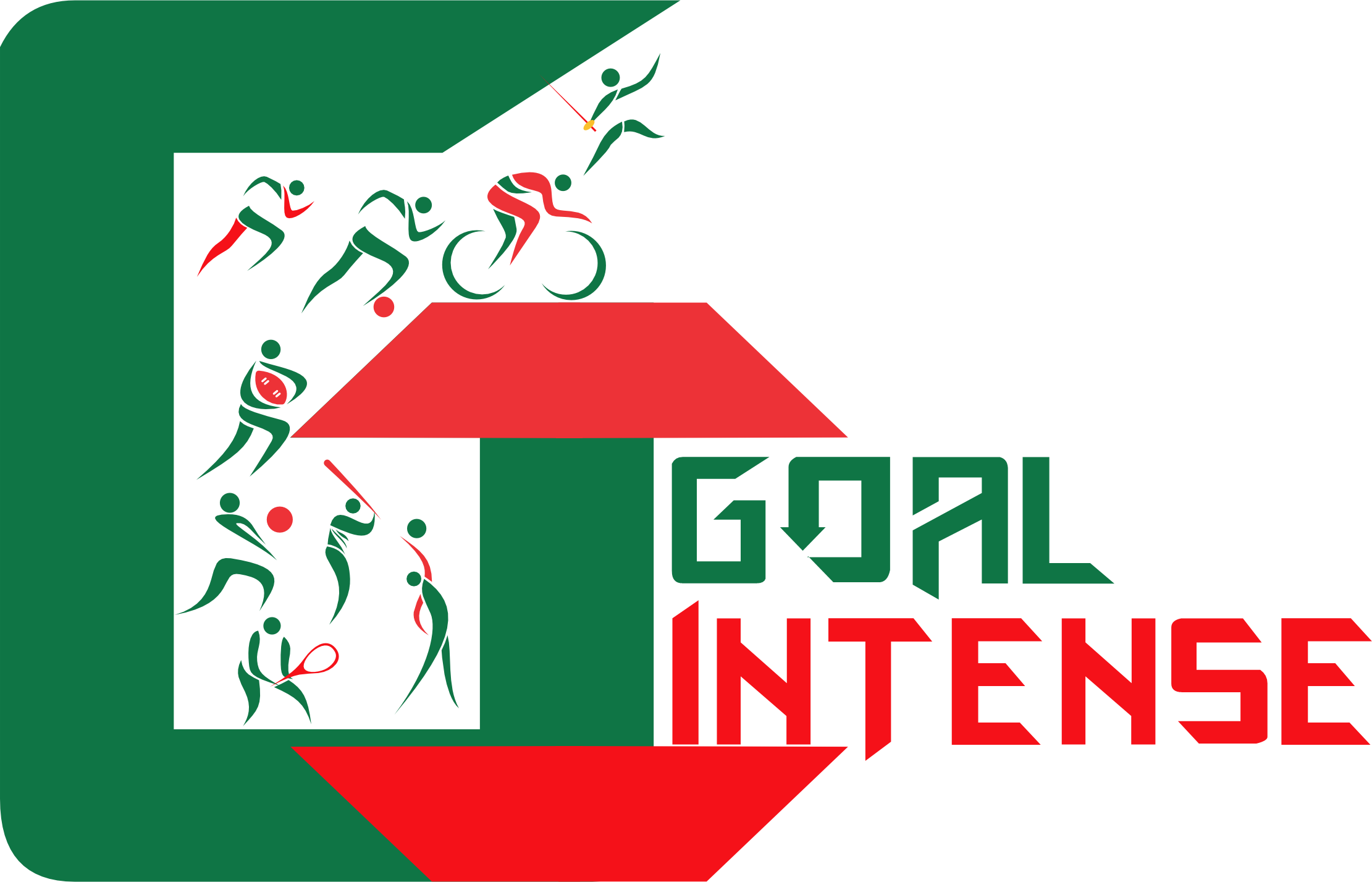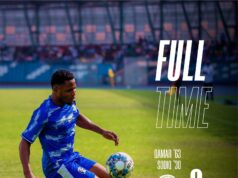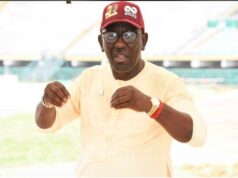The Ministry of Youth and Sports Development has rolled out its 2020-2030 sports industry reform, repositioning and development agenda following a consultative meeting it held with Nigerian Economic Summit Group in 2019.
The ministry through its minister, Sunday Dare sought to institutionalize Sports as a Private Sector led Industry in line with global best practices and to develop youth-based vibrant sectors to drive the Nigerian economy.
In the bid to achieve that, the NESG and the ministry held its First Inter-Ministerial Technical Session on Sports Industry Development in November 2019 where participants brainstormed in Sector-specific Breakout Sessions, and harmonised cross-cutting, cross-sectoral issues with significant impact on the development of a reformed and repositioned Sport Industry in the country.
The Inter-Ministerial Technical Session is jointly hosted by the Ministry and the Nigerian Economic Summit Group (NESG) and is a part of the NESG’s Sports Industry Thematic Group 2019/2020 Work Plan.
This is expected to dovetail into the National Sports Industry Policy Dialogue which will be held this year as part of the events marking the National Sports Festival (Edo 2020).
The goal of the Inter-Ministerial Technical Session was to develop a pathway for constant dialogue and engagement between the private and public sectors in order to chart a sustainable course for unlocking the potentials of the Sports Industry and enabling the development of the whole gamut of the value chain of sports.
Through this pathway, it was expected that the reform of the Sports Industry will contribute to the socio-economic indices of the Nigerian economy by increasing participation in sport, enabling the creation of jobs, promoting greater employment of youth, generating revenues from sport-related activities and targeting a GDP contribution of 2-3% to the Nigerian Economy within 5-10 years.
Speaking at the event then, the Vice-Chairman of the NESG, Mr Niyi Yusuf stated that this was the first-ever MoU on sports industry development and that the day’s event was preceded by a number of milestones including; the first Inter-ministerial technical session involving ten ministries and several departments and agencies of the federal government, establishment of a sports industry working group between the FMYSD and the NESG, a business round-table session on Sports Industry development and establishment of the Eminent Focal Group (EFG) as the resource arm to drive the work of the thematic group in the development of the sports industry.
“The milestones form the cornerstone of the NESG/FMYSD collaboration to ensure that we are jointly successful in driving new revenue and employment streams for the socio-economic development of Nigeria as has been successfully done in many other countries.” Mr Yusuf concluded.
He noted that the NESG is an important stakeholder in the economic development of Nigeria, “they are always providing strategic inputs to policy and helping to reshape the thinking in Government, it has transformed itself into a formidable think-tank that no Government should ignore. We are happy to be associated with you.” Dare stated.
Furthermore, Dare stated that he was intent on changing the fundamentals of engagement in the Sports Industry before changing the narratives.
He noted that despite the paucity of funds the Sports Industry faced, the MoU would help to transform the sports industry into a sector that creates jobs and revenue.
‘We intend to move from concept to action, and today we are giving a bite to that intention by signing this MoU.
“The establishment of the Nigeria Sports Industry Policy, which will eventually culminate in an Act of the National Assembly that will spell the rules and regulation on the playing field,’ Dare stated.
Dare further made it known that he believes that with the right policies to drive social engagement and inclusion as well as economic development, the sports industry in Nigeria is capable of harnessing the economic power of the youth through engagement in sports.
During his speech at the signing of the MOU in Lagos on December 17, 2019, Dare said he fairly understood why the sports industry was underdeveloped.
“Prior to being assigned by Mr President to head the Ministry of Youth and Sports Development, I had always wondered why our sports sector had defied all solutions to develop it. Even as a then “outsider” I had a fair idea of what was going on in the administration of the sector. What is going on in the sports sector is the paucity of resources, which had made refrains like “… there is no money… … . private sector is not attracted to the sector… .” commonplace.
“Now that I am in Government, from a vantage position in the driver seat I now better appreciate the magnitude the funding gap that has held back our sports, especially given government’s dwindling resources.
“While presents as a problem is equally an opportunity, a chance for private sector participation and ownership of the business associated with sports. It is an opportunity that is demanding attention in the face of shrinking resources. It demands a review of the current situation where the government views and treats sports as a social service when in reality it is a multi-billion-naira industry!
“I immediately understood that only two words could unlock opportunities from the funding problem of sports: ‘Disruptive Thinking’,” he said.
To conclude the event, Mr Udeme Ufot, board member of the NESG and co-chair, Tourism, Hospitality, Entertainment, Creatives and Sports as a business (THECS) policy commission thanked the sports ministry and the sports industry thematic group for their cooperation and said that the NESG will continue to work and champion the transformation of the Nigerian economy into a modern and globally competitive economy.
The Sports Industry Thematic Group (SITG) is one of the three thematic groups of the THECS Policy commission and it is focused on developing sports as a viable business to generate new streams of revenue, create jobs and also foster Nigeria’s socio-economic development.Close
In an exclusive document obtained by our correspondent, the agenda seeks to deliver 10 million jobs (5 million direct jobs and another 5 million indirect jobs); N2 trillion in annual revenues as well as delivering 2%-3% GDP contribution.
According to the document, the first phase of the agenda is the 2020 Work Plan based on the concept of 3Is and 1P (incentives, Investment, Infrastructure and Policy) which recognizes and endorses an Implementation Plan built around a Public-Private Dialogue (PPD) Partnership and collaboration framework between the Public Sector (represented by the sports ministry) and the Private Sector (represented by the NESG) that would implement the strategies under the Agenda.
According to the 2020 Work Plan, The Sports Industry Working Group (SIWG) will be set up this month (January) and this will serve as the operational arm to coordinate the initiatives towards ensuring collaboration between the cross-sectoral MDAs of the government that would be required to achieve the goals of a truly viable sports industry.
The Work Plan also aims to have an inter-ministerial collaboration on sports industry development by February while in April, the National Sports Industry Policy and Incentives Package for the reform and development of the industry will be launched.
Between July and September, the National Sports Industry Business and Investment Summit and Road Shows will take place and from August towards December, the Private Sector led Investment and Infrastructure Development Implementation Platform will be launched.








